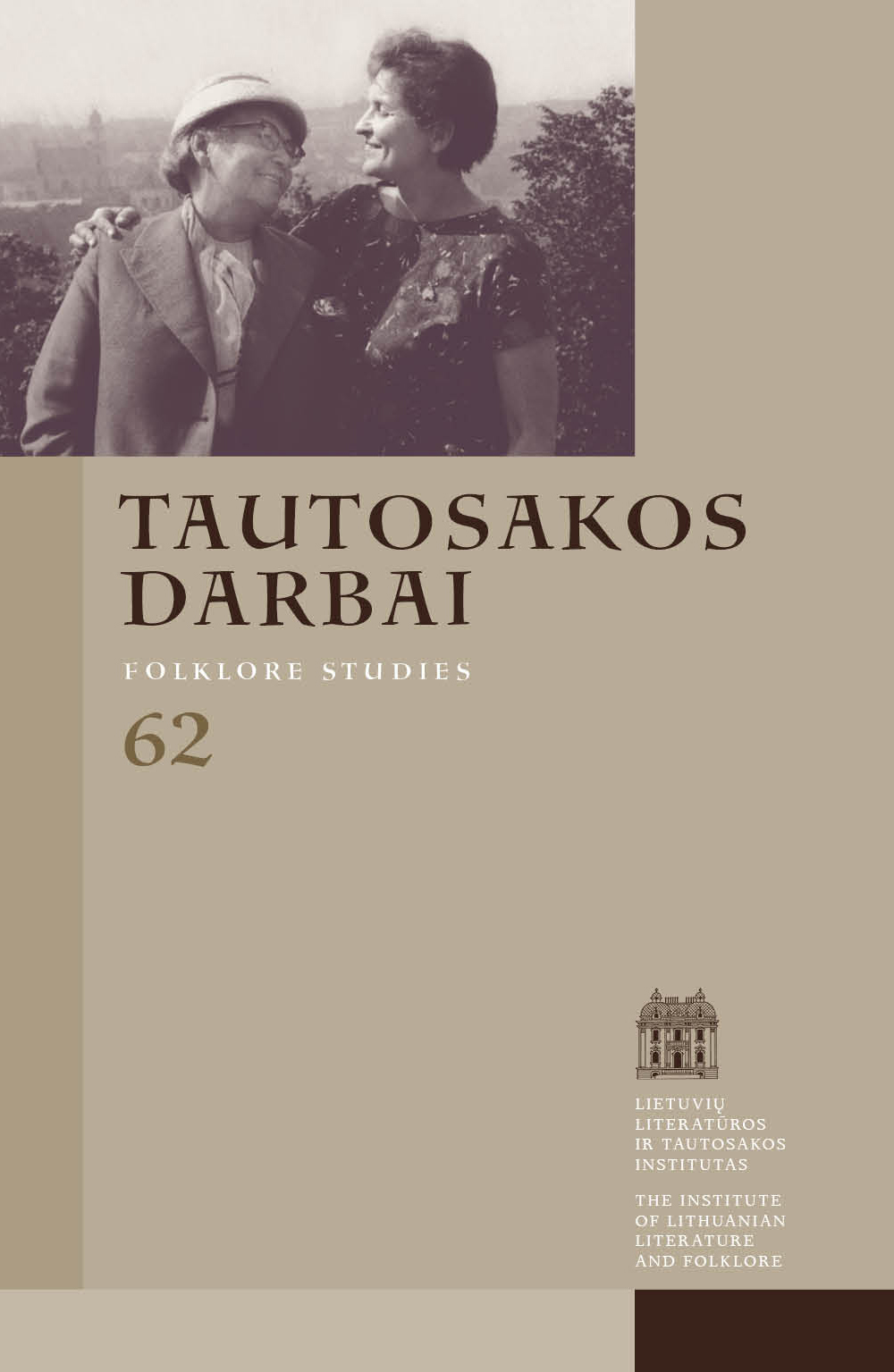Jonas Basanavičius as Creator of the Thracian Theory of Lithuanian Origin
Abstract
The theory (hypothesis) tracing Lithuanian origins from the ancient Thracians is perhaps the most romantical and most ideologically engaged part of the scholarly legacy by doctor Jonas Basanavičius (1851–1927). Shaped already in the period of publishing “Aušra” (1883 – 1886), this theory was developed in the course of his entire life and could be regarded as the greatest reflection of Basanavičius’ romantical worldview and thinking. Having successfully performed important functions of fostering the Lithuanian national identity, awakening the national consciousness and national pride, and enhancing the national communication in the last decades of the 19th century, the “Thracology” – reasonably criticized already in the interwar period – is currently just a historiographic fact from the perspective of the modern science. Although being able to grasp certain tendencies, Basanavičius did err considerably in some of his interpretations. However, his “Thracology” was not just a scholarly study.
While creating and developing his Thracian theory of Lithuanian origin, Basanavičius followed the mythological ideology tradition of the first half of the 19th century, in which the historical narrative used to start with a story of origins (according to Gintaras Beresnevičius, researcher in Lithuanian mythology). His Thracian hypothesis should be regarded as a mythical image of Lithuanian origin, which essential purpose was idealization of a nation that started a new free political life. In this context, culture and especially its continuity from the past to the present and future emerges as the main ideological value of “Thracology”. It enables appreciating people from the past and their unique culture as important participants of the national present and future. This theory supports the idea of Lithuanian adherence to the European culture.
The Thracian theory is not just a scholarly study because Basanavičius viewed cultural history not only as a science that objectively examined historical facts, but also as an inherent part of the human life that could aid self-understanding and personal growth. Therefore, it is important to note that the world of ideas is clearly recognizable in the Basanavičius’ texts along with the scholarly and sensual worlds. The original forms of the Thracian theory are reflected in the earliest experiences as testified by its author. Basanavičius retrospectively mentioned Thracians already while recounting his childhood. Thus, the article supports an assumption that “Thracology” used to be an important part of Basanavičius’ life since his youth – starting from his studies at the Moscow University.
After Basanavičius settled in Bulgaria, and particularly from the period of publishing “Aušra”, the Thracian hypothesis of the Lithuanian origin should be considered as the main idea of his studies and life; it strongly affected him for the rest of his life and comprised an important part of his cultural identity. In terms of this hypothesis, Basanavičius stands out as a person that merges a researcher in anthropology and creating of his own cultural identity.
